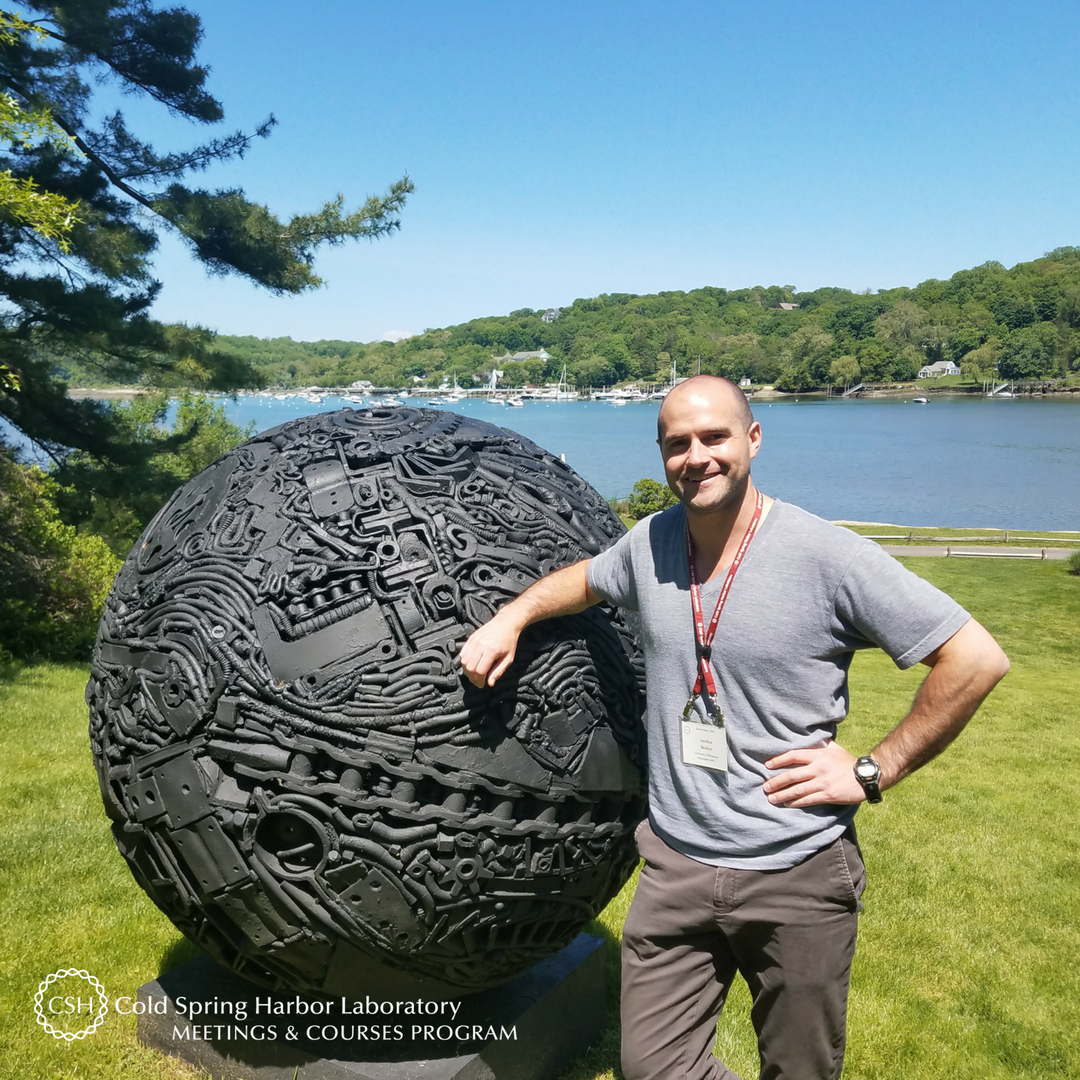Meet Dung Nguyen of the Uniformed Services University of the Health Sciences! The Vietnamese national is a postdoctoral fellow in Dr. Marzena Pazgier’s lab who recently took part in his first CSHL meeting: Retroviruses. At this year’s virtual meeting, he also presented a poster entitled “Structure-based design of antibody conjugates sensitizing HIV-infected cells to Fc-effector mechanism”. Before we jump into the Q&A, here is what Dung had to say of his experience:
First of all, this is my first virtual meeting! It exceeded my expectation, really well-organized and professional. I got to check out more posters on my own time which I couldn’t do with the in-person format. I want to thank all the organizers for a successful virtual meeting and I hope that we will be able to meet next year so I can check out the beautiful Cold Spring Harbor campus.
Tell us about your research.
Our group has multiple projects that focus on HIV-1 prevention and treatment through development of new vaccines and anti-HIV-1 therapeutics. Specifically, my research focuses on the structure-based development of antibody-small compound/peptide mimic conjugate therapeutics that will be capable of eliminating HIV-infected cells in HIV-infected individuals through antibody-dependent cellular cytotoxicity (ADCC) response.
How did you decide to focus on this area/project?
In my PhD, I have prepared and assessed immunogenicity of multiple protein-glycopeptide conjugates as HIV vaccine candidates. I have learned and become increasingly interested in HIV vaccine and protein conjugation. Moving on to my postdoc, I continue working on HIV research developing bifunctional, site-specific antibody conjugates, while getting trained in structural biology methods such as X-ray crystallography and cryo-EM.
What and/or who is the inspiration behind your scientific journey?
I am thrilled to have an opportunity to work on exciting projects in Dr. Pazgier’s lab. My postdoc projects are aligned perfectly with my interest and it’s also helpful that Dr. Pazgier is an amazing mentor, friendly and knowledgeable. She gives me great advice and always encourages me to ask more questions and is not afraid to let me explore new ideas. I am learning so much from her and all of my wonderful colleagues in our lab.
What impact do you hope to make through your work?
Through my work, I hope to gain a better understanding of the molecular basis of the function of anti-HIV-1 Env antibodies, particularly, those new antibody conjugates that are involved in Fc-mediated effector functions.
Where do you see yourself in five years?
During this unprecedented time, it is hard to predict where I will be. Nonetheless, in five years time, I see myself becoming a well-trained professional in protein engineering, structural biology and structure-based therapeutic design.
What do you love most about being a researcher?
What I love most about being a researcher is flexibility and creativity. I love that, when facing a problem, we are able to come up with a hypothesis, then design experiments to test the hypothesis in order to figure out the solution. I think, in science, there is no visible boundary and the process of knowledge flowing from one field to another field always amazes me. As a scientist, we are able to obtain new ideas from one field and apply them to another field. There is still so much to learn.
What drew you to attend this meeting?
What drew me to the Retroviruses meeting was the diversity of all the amazing research presented here. In my PhD and postdoc research, most of my work focuses on the HIV envelope gp120 trimer. Thus, this meeting provides an amazing platform that I can listen to all the experts in the field presenting their works and learn from them.
What is your key takeaway from the Meeting; and how do you plan to apply it to your work?
Participating in the meeting has expanded my knowledge beyond my own field of expertise. I am excited to come back next year and see everybody’s progress.
What feedback or advice would you share with someone considering to participate in this meeting?
Don’t be afraid to reach out, ask questions and connect with other experts in the fields.
What’s the most memorable thing that happened during the Meeting?
The most memorable thing that happened during the meeting was that I got to listen to many great talks especially the 2 keynote speakers: Dr. Dennis Burton and Dr. Anna Marie Skalka whose scientific journeys and contributions have inspired not just me but all the participants.
Thank you to Dung for being this week's featured visitor. To meet other featured researchers - and discover the wide range of science that takes part in a CSHL meeting or course - go here.







